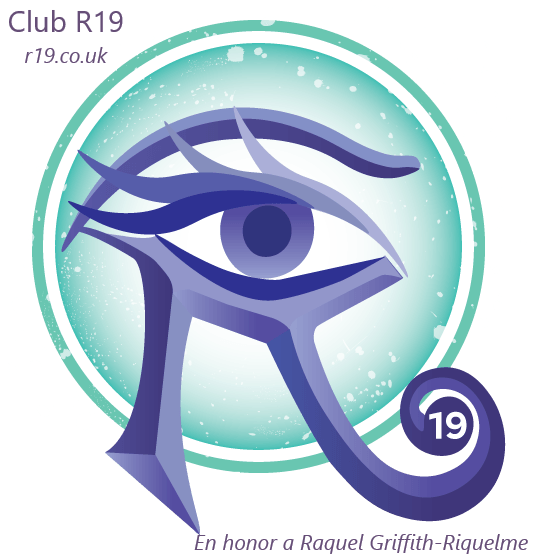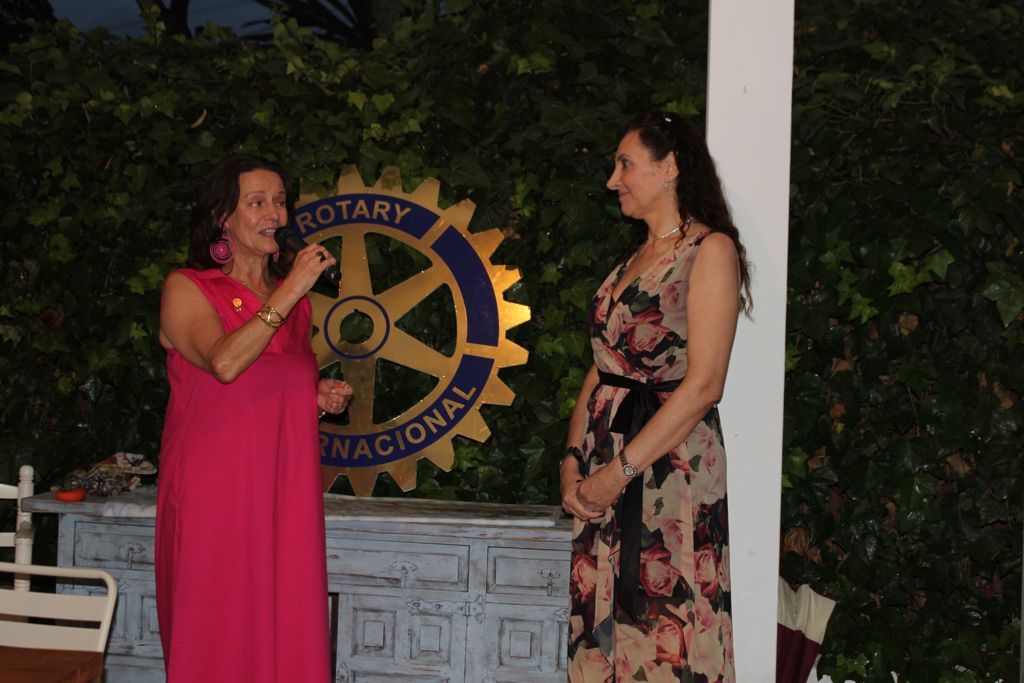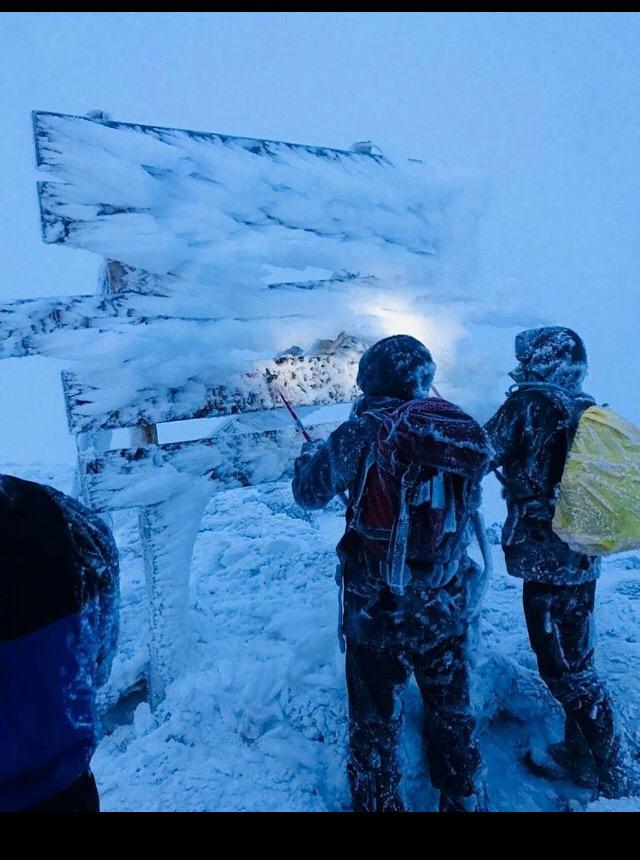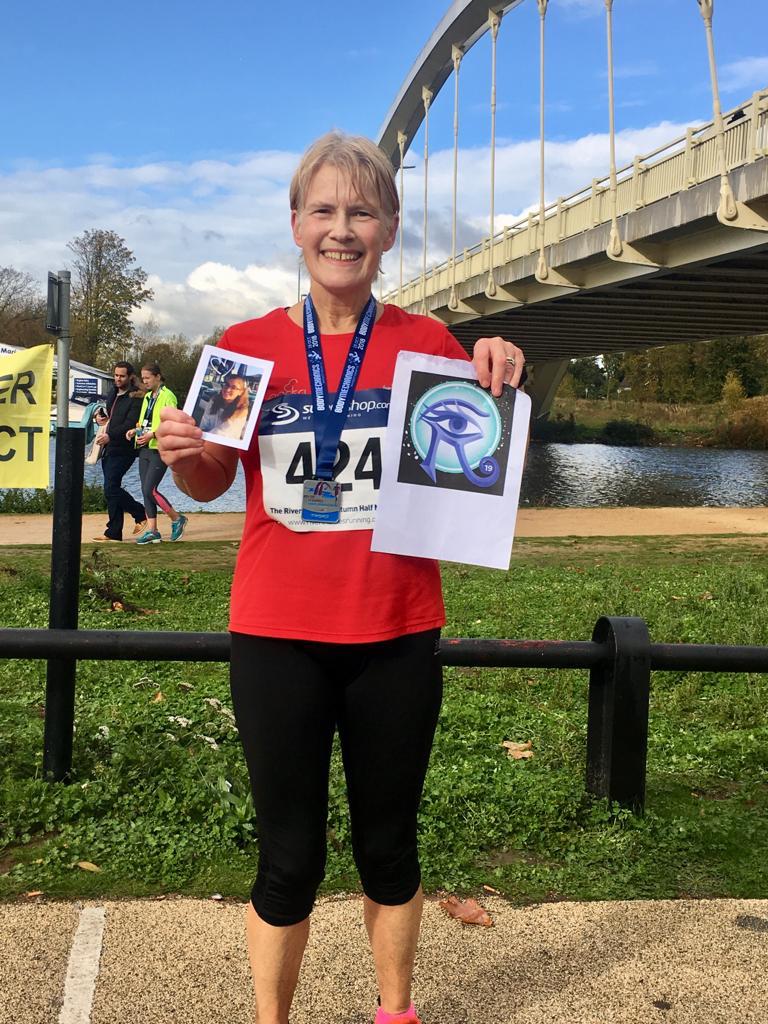CLUB R19 Live on teleelxRadio - November 2018
- by Josephine Riquelme
- •
- 05 Nov, 2018
- •
CLUB R19 EN teleelxRadio EN DIRECTO - NOVIEMBRE 2018

R19 was founded:
1. In honour of Raquel to bring awareness about cystic fibrosis [cf]
2. To raise funds to support people with cf
3. To undertake challenges and events such as the Triple Peaks Challenge in order to achieve these objectives and also to highlight the importance of physical activity for people with cf - in other words, more exercise and less medicines
With respect to the Triple Peaks Challenge, two weeks ago three R19 teams climbed three mountains in three countries in order to coincide with Raquel's first anniversary - one team climbed the highest mountain in continental Spain, Mulhacén (3479m), another team the highest mountain in Africa which is also the highest free-standing mountain in the world, Kilimanjaro (5895m), and a third team climbed the highest mountain in Wales, Snowdon (1085m).
In a two month period, September and October, R19 has produced a Concert with international artists, run two marathons and climbed three mountains, raising over €15,000. See some of the photos here.
A little breather is required! However, we are thinking about the next challenge and that it is something quite spectacular!
R19 se fundó:
1. En honor de Raquel para concienciar a la gente sobrefibrosis quística [fq]
2. Para recaudar fondos para apoyar a la gente con fq
3. Hacer desafíos y eventos como escalar las montañas es para cumplir con estos objetivos y también intentar destacar la importancia de la actividad física para la gente con fq o sea más ejercicio y menos medicamentos
Con respecto a las montañas hace dos semanas tuvimos tres equipos escalando en tres países para coincidir con el primer aniversario de Raquel – un equipo escaló la montaña más alta en la Península Ibérica, Mulhacén (casi 3500m), un segundo equipo la montaña más alta en África, Kilimanjaro (casí 6000m), y el tercer equipo la montaña más alta de Gales, Snowdon (un poco más de 1000m).
La idea originalmente fue de un sobrino de escalar el Kilimanjaro y esa idea creció rápidamente para la creación a nivel nacional de R19 como asociación benéfica en agosto 2018 por lo que en un par de meses hemos hecho el concierto ‘Shooting Star’ en el Gran Teatro de Elche, hemos escalado tres montañas y hecho dos maratones y en total recaudando, hasta la fecha, más de €15k.
Escalar una montaña no es fácil pero los tres equipos tuvieron guías profesionales, más que nada, para la salud y seguridad. En la página web de R19, r19.co.uk, se pueden ver las fotos de los desafíos y otras fotos como las del concierto.
¡Estamos pensando en el próximo desafío, pero tiene que ser algo muy espectacular!
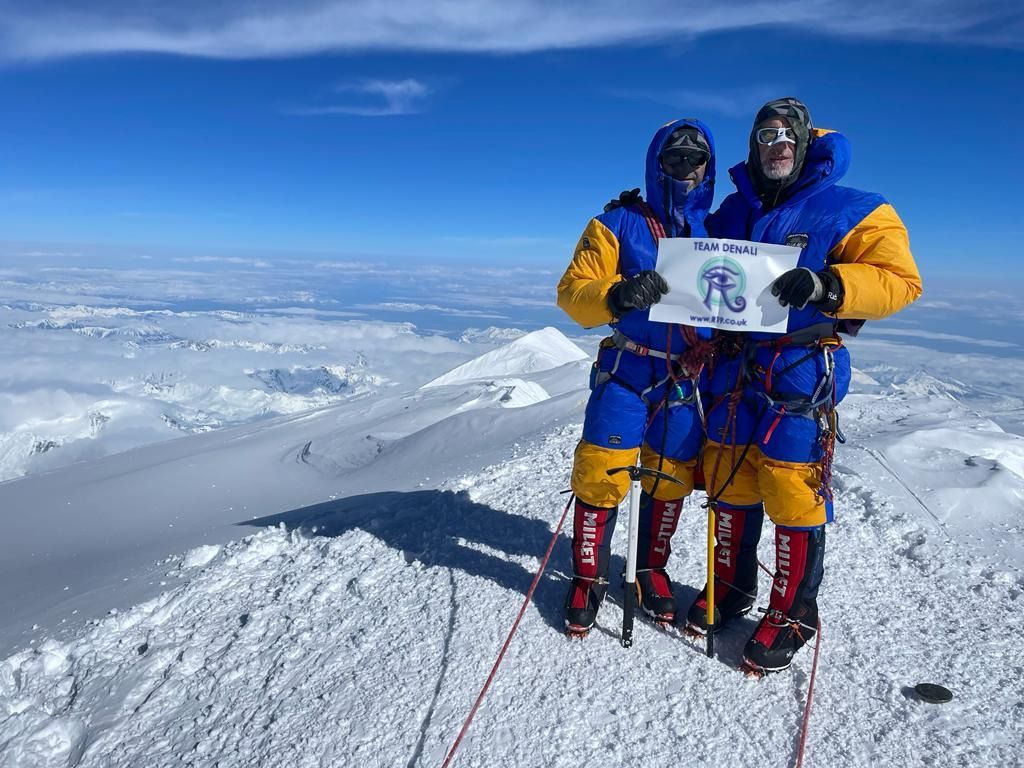
Club R19 gives thanks to
Alfonso Blas and
Carlos Cardelle for their spectacular achievement in climbing Denali. They teamed up to give increased visibility to Uner
,
Rafiqui and
Club R19 in support of Cystic Fibrosis. Well done Alfonso and Carlos!! Click here for more about this challenge.



Upon setting foot in Tanzania on October 17th 2018, I knew I was set for things greater than I had ever previously experienced. Although Mount Kilimanjaro’s original meaning is widely debated, it is known to the native tribes as a god, translating to “that which is impossible”.
The Kiswahili version of the mountain is kilima kyaro. The most bewildering fact about Kilimanjaro as Africa’s highest mountain, and the world’s tallest free-standing mountain at 19,341 feet (5,895 meters) is that it is not actually a mountain. Sources have it that Kilimanjaro is a giant stratovolcano that began forming about a million years ago and is composed of many layers of hardened volcanic ash, lava, pumice and tephra. This two-faced nature of Kili had shown its true colours during my journey. On my ascent towards the top I was totally immersed in what, in experience, felt like a wild, other-worldly planet. I’d never seen such a vast series of terrains come together in such a way that I felt totally vulnerable yet in absolute admiration. Something that could take life could also give so much of it to an entire population. In such vulnerability, I also felt equally inspired to take this giant on. Not only in spirit of our darling Raquel, but in spirit of what it means to be human, something I personally believe Raquel advocated for in her unconditionally loving ways.
Kili is both a place of serenity and diverse scenery, where one can really dive into the riches of life away from the pressures of man-made society and a mysterious realm heaving intense conditions that can turn against any climber at any given moment, threatening their safety. While many have reached its tops, climbing Kili in the rainy season is a different story altogether. I learned that most people climbing Kilimanjaro totally underestimate it purely because of its high praise and worldwide reputation as a doable, and enjoyable climb. This kind of naivety is what results in certain defeat. Although in the company of a fantastic team of eleven hard-working porters and one guide I now call a dear friend and integral part of our project (Methley Swai) with Just Kilimanjaro, day by day, I felt beaten and worn. So much so that I fell ill from exhaustion on day three at the Barranco Camp out of the blue. I had acclimatized really well having already reached the Lava Tower Camp at 4,600m high but suffered as the weather turned aggressively, with the barometric pressure changes taking their toll on me. None of the crew understood what was going on with me as I had no previous issues, but ultimately the mountain spoke.
I went through the motions, the negative spirals in the back of my mind. Any ounce of composure I had was challenged consistently, any ego diminished. I was in pain and I wasn’t sure I was going to finish what I started for Raquel and R19, something I knew we’d worked so hard to create. By the grace of all that is good, a day passed and I pushed on to the Karanga Camp and found some strength. But it wasn’t over yet. The storms to come from there were ferocious. The winds and sprays were so harsh, fifteen teams were sent down to the bottom, stripped of their opportunity to summit. I, too suffered the same fate on this occasion. Although I felt ready to go, Methley suggested we turn back as the conditions were severe for days to come and I was running severely low on energy. I knew I could do it all the same, very willing to go through the aches and pains of pushing on. I wanted to summit although in such conditions it would have required 30 hours of struggle up and down the mountain. I had to turn back.
From there, my 20km descent under the intense tropical rain was somewhat of a spiritual cleansing. At first, I felt disappointment, frustration and absolutely difficult to accept defeat. But soon enough I realized it was not my time. A hunger and clarity in me was born that I now take with me hereon. I knew some of Raquel’s last words emphasized never giving up. I knew she would not have wanted me to be put in danger, never mind a team of men who were likely not going to be safe if I demanded we carry on. I saw it as an opportunity, to come back stronger, where the spirit of resilience that existed in Raquel during her struggles could be nurtured in myself and in all of us. I did everything I could this time, and I accepted the circumstances quickly after reflecting. I have found greater hunger as I now know what it is I am facing and I leave this African adventure with a smile on my face.
The Tanzanian people say Kilimanjaro is greater than all of us. I say the human spirit is greater than anything else, and there is certainly no mountain high enough to intercept a rhythm as great as ours in the name of love. Perhaps I return to a certain summit at a faster pace and a lot more to show for my time and experience from my first attempt into the unknown. From this journey, I take with me a stronger heart, a greater wisdom and a humbler approach to each day. There could be no greater gift than that in light of honoring a vibrant and accomplished human being. And it’ll only mean that much more when we reach the top! I see it as inspiration for more climbs. More drive. More love.
“Whatsoever is delighted in solitude is either a wild beast or a god.”
As a free-standing mountain, I cannot help but think there is a sense of godliness in Kilimanjaro. In fact, I can confirm it. It needs no man and holds its own. It perhaps represents the strength and resilience required to climb it, and only accepts those who align with its grandeur on the day.
A message to Kilimanjaro:
You welcomed me, you took me out and you sent me down. I’ll come back a stronger man and I will be back. (OCT 2018)
Joshua A. P. Griffith
